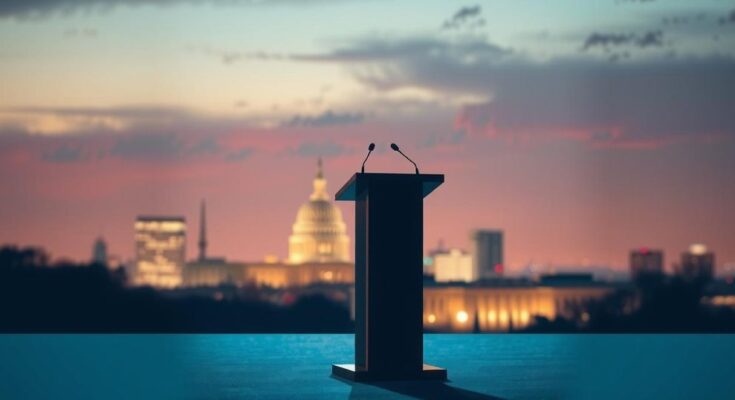DW Africa will tour Germany from February 11, 2025, to highlight electoral issues ahead of the federal elections on February 23. Amid economic concerns and rising far-right popularity, incumbent Chancellor Olaf Scholz, with low approval ratings, faces stiff competition from Friedrich Merz of the CDU/CSU and Alice Weidel of the AfD. The election’s implications for German-Africa relations will also be explored.
DW Africa will embark on a week-long tour across various regions in Germany starting February 11, 2025, to gather insights on issues that matter most to the electorate ahead of the federal elections. On February 23, approximately 60 million Germans will cast their votes to determine the leadership of Europe’s largest economy for the next four years. This election is set against a backdrop of economic concerns, recent violent incidents, and the rise of the far-right AfD party.
The upcoming election will address Germany’s ongoing economic decline, a critical point of concern among voters. Many citizens are anxious about the country’s future and the escalating cost of living. Some blame the outgoing government’s failure to establish spending targets last year, which has contributed to a pervasive sense of dissatisfaction.
Voters will not directly choose their Chancellor; instead, members of parliament will vote for the leader after the elections reveal party composition in the Bundestag. The election, occurring seven months early due to the collapse of a coalition government, marks a change in Germany’s political landscape.
Incumbent Chancellor Olaf Scholz from the Social-Democrats (SPD) is seeking re-election, but with approval ratings around 15%, his prospects appear grim. The conservative CDU/CSU led by Friedrich Merz is currently the frontrunner with expected support of around 30%. The far-right AfD, with Alice Weidel as their candidate, anticipates becoming the second strongest party with approximately 20% of parliamentary seats.
Other notable candidates include outgoing economics minister Robert Habeck from the Greens, projected to receive about 14%, as well as Jan van Aken and Heidi Reichinnek from Die Linke, expected to garner around 5%. Christian Lindner from the Free Liberals (FDP) is also contesting, with projections placing his party at around 4%. According to German law, any party receiving less than 5% will not enter the Bundestag, though they can still compete for individual seats.
The DW Africa team will comprise journalists fluent in Kiswahili, English, Hausa, Portuguese, Amharic, and French, conducting interviews in Magdeburg, Berlin, Potsdam, Frankfurt, and Wolfsburg. The team’s extensive experience will enrich their coverage across various media formats. They will engage with political analysts, voters, and election monitoring bodies while examining immigrant perspectives and the broader implications of the elections on Germany-Africa relations.
The upcoming 2025 German federal elections are characterized by economic anxiety, rising far-right sentiment, and an urgent call for clarity from the electorate. As key political figures vie for leadership amidst a complex electoral system, DW Africa is committed to providing comprehensive coverage, emphasizing voter priorities and the potential impacts on international relations, particularly between Germany and Africa.
Original Source: www.dw.com




